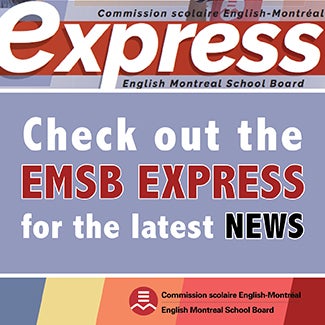The EMSB seeks Quebec’s authorization to apply for federal funds

On Thursday, February 6th, a complaint was filed with the English Montreal School Board (EMSB) claiming that it had contravened Section 3.11 of the Act respecting the Ministère du Conseil Exécutif by seeking funding from the federal Court Challenges Program in support of its constitutional court cases without first seeking the Quebec government’s authorization.
In response, the EMSB renounced the federal funding which had been approved, but had not yet been received, giving the EMSB Council of Commissioners time to meet and to decide how best to proceed in light of much political scrutiny. While the EMSB is under partial trusteeship, the Council continues to oversee legal matters pertaining to English minority rights.
Many false conclusions were drawn by members of the English community and press last week, and the EMSB wants to set the record straight.
The decision to rescind the funding agreement with the Court Challenges Program in no way changes the EMSB’s resolve to see its constitutional challenges to their end. Nor does it address the unfairness of a provision in Quebec law that makes it unduly difficult for a school board to seek funding for its constitutional cases against the government.
It must be highlighted that it is counter-intuitive (if not completely nonsensical) that a minority language school board like the EMSB should have to ask the government, against whom its court actions have been launched, for permission to accept federal grant monies designated for exactly that.
For decades, the Court Challenges Program has funded human rights, language rights and constitutional rights challenges against the federal and/or provincial governments across Canada. It has played a crucial role in allowing francophone communities outside Quebec to have their minority rights cases heard and judged fairly and without prejudice. Without a doubt, the very survival of francophone and Acadian communities and the French language itself outside of Quebec, can be traced back to court cases that were funded either in part or in full by the Court Challenges Program.
The Court Challenges Program deemed that EMSB’s challenges to Bill 21 and to forced school transfers in St-Leonard last June under the Education Act raise issues of great importance for English minority rights holders in Montreal and Quebec under s. 23 of the Canadian Charter and was prepared to grant funding for both cases.
All the EMSB wants is to be allowed to avail itself of all funding sources at the disposal of all minority groups in order to have its constitutional cases heard and judged in a Quebec court.
To that end, at a caucus meeting earlier this week, the EMSB Council of Commissioners mandated its Director General to undertake all actions necessary to obtain the Quebec government’s authorization under Section 3.11 of the Act respecting the Ministère du Conseil Exécutif in order to be able to enter into an agreement with the Court Challenges Program to partly fund its challenges to Bill 21 and section 477.1.1 of the Quebec Education Act.
The letter to this effect was sent to the Quebec government earlier today.
In terms of federal funding, the EMSB wishes to mention that while education falls under provincial jurisdiction, the federal government provides grant monies (approx.. 65M$ per year) under the Canada-Quebec Entente to support English language minority communities. This money is managed by the MEES. Last year, the EMSB received a $500,000 grant to renovate part of Royal Vale School in NDG. Receiving federal grants is not unusual.
In conclusion, the EMSB would like to highlight that individual citizens who are members of the English-speaking minority community are NOT subject to section 3.11 of the Act respecting the Ministère du Conseil Exécutif and may avail themselves of funding offered by the Court Challenges Program.











